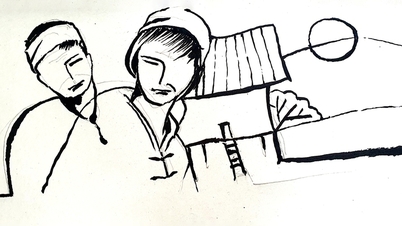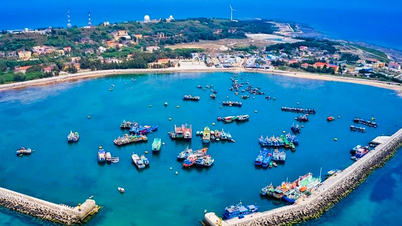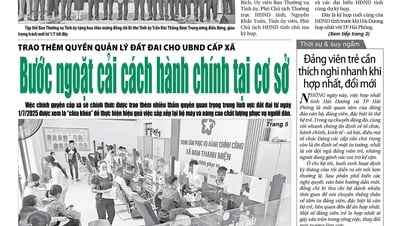John Ernst Steinbeck (1902-1968) was a journalist and writer of naturalistic novels. He was born in California, of German and Irish descent, and won the Nobel Prize in Literature in 1962.
 |
| Writer John Ernst Steinbeck. |
He studied marine botany; his university studies were interrupted. He experienced many hard jobs such as cow herder, chemist in a sugar factory, fish breeder, plantation manager, mason, sailor… He entered journalism and writing, which was very difficult. The couple often had to eat fish they caught themselves.
During World War II, Steinbeck worked as a war correspondent. In 1937, he went to the Soviet Union and wrote Russian Journal (1948). After the war, in his writings, he often sought sensational, psychological aspects. East of Eden (1961) tells the story in a psychoanalytic light of a broken family, the mother leaving to become a prostitute, the son causing the death of his brother (modernizing the story of brothers killing each other in the Bible). In general, Steinbeck's writings are very erratic.
Early works such as the adventure story Cup of Gold (1929) had many romantic and mystical elements. His own hard working life was portrayed in stories written in the 1930s.
The Pastures of Heaven (1932) is a collection of short stories about simple, unsophisticated people living in a valley of that name; Tortilla Flat (1935) is about Native Americans, whites, and Spanish people living a hard, immoral, but happy life in a shack in Southern California; the manuscript of this work was rejected by nine publishers, but when printed it was welcomed; In Dubious Battle (1935) is about a strike of seasonal fruit pickers in California; Of Mice and Men (1937) describes the tragic lives of agricultural workers.
With The Grapes of Wrath (1939), Steinbeck asserted his place in the American proletarian literary movement in the 1930s; at first, he generally sympathized with the Communist Party. In Vietnam, there is a translation of The Grapes of Wrath , the name of Steinbeck's famous novel is "The Grapes of Wrath". I'm afraid that this translation is difficult to understand, because Vietnamese readers will wonder why the grapes are angry. I also can't find a translation that is both close to the literal image and full of the figurative meaning. The author compares anger and rebellion to ripe, fermented grapes: "Ripe Wrath".
Ripe Indignation won the Pulitzer Prize in 1940, depicting the miserable scene of American farmers who lost their land and were oppressed and exploited no less than Vietnamese proletarian farmers forced to work on rubber plantations far from home.
In the Midwest and Southwest, the land was barren, and the capitalists mechanized agriculture; thus, the small farmers failed. The banks were their creditors, seizing their land to exploit it directly: with just a tractor and a hired worker, they could cultivate a vast area of land that could previously support dozens of families. Driven out of their homes, farmers had to migrate elsewhere. Propaganda leaflets told them that California was a place of rich soil and very high labor costs. So hundreds of thousands of people left for the West. After many months of hardship, they arrived only to find that they had been cheated. The only work was picking fruit and cotton, and that was only in season. The landlords waited for people to come in large numbers to hire cheap labor. They were also the bankers and canneries, so they could decide the prices. They depressed prices, squeezed the small farmers, so that they often did not dare to pay for harvesting.
A horrifying scene emerged: the owners destroyed tons of vegetables to maintain prices, while thousands of families had nothing to eat. The poor, afraid of losing their jobs, did not support the new immigrants, and joined forces with the police and the entire government apparatus to suppress them. The promised land of the vagrants became a large prison.
The story “Ripe Wrath” takes place in that tragic setting. Steinbeck focuses on the Joad family in Oklahoma. One son, Tom, in a fight, kills the sister of the man who tried to stab him. After four years in prison, he is released on a promise of honor.
Ripe Wrath was directed by John Ford and turned into a valuable film (1940) with the image of Tom's family on a cholera truck going to the West to find new jobs. The work is a "thesis novel" so it has many weaknesses: there are places that are naive or confused about ideals. The author condemns agricultural mechanization in an extreme way, wants to return to the old agricultural system, but calls for social revolution. Many streams of thought to solve social injustice are intertwined: Emerson's "transcendentalism", Whitman's democracy attached to land, W. James's pragmatism, F. Roosevelt's "New Deal" with government intervention. The characters and ideas are quite sketchy. But its value is its engaging storytelling, strong emotions and ability to convey based on love for the oppressed and exploited.
There is a compassion in Steinbeck that goes hand in hand with tolerance of sin and acceptance of disorder. Some critics have said that he has gone too far in this direction, sometimes reveling in violence and human degradation. Sometimes he wants to show that order, correctness, and success often go hand in hand with cruelty and cruelty. He often records irrational attitudes that can only be explained by passion.


![[Photo] Keep your warehouse safe in all situations](https://vphoto.vietnam.vn/thumb/1200x675/vietnam/resource/IMAGE/2025/10/1/3eb4eceafe68497989865e7faa4e4d0e)

![[Photo] Hanoi morning of October 1: Prolonged flooding, people wade to work](https://vphoto.vietnam.vn/thumb/1200x675/vietnam/resource/IMAGE/2025/10/1/189be28938e3493fa26b2938efa2059e)


![[Photo] President of the Cuban National Assembly visits President Ho Chi Minh's Mausoleum](https://vphoto.vietnam.vn/thumb/1200x675/vietnam/resource/IMAGE/2025/10/1/39f1142310fc4dae9e3de4fcc9ac2ed0)



























































































Comment (0)